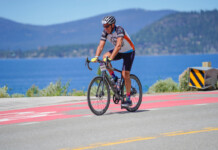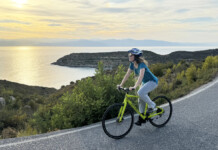By Jamie Morningstar — Cycling Utah / Cycling West has a wide and varied readership. Some readers open up each month’s issue and zoom straight to the race results and next month’s race schedule. And plenty of others are dabbling in cycling – learning the ropes, figuring out if a bike fit is worth the money (it is!), and maybe toying with the idea of riding their first century. And, fortunately, Utah and the whole mountain west region has a wonderful variety of cycling events from top races to recreational events open to all riders.
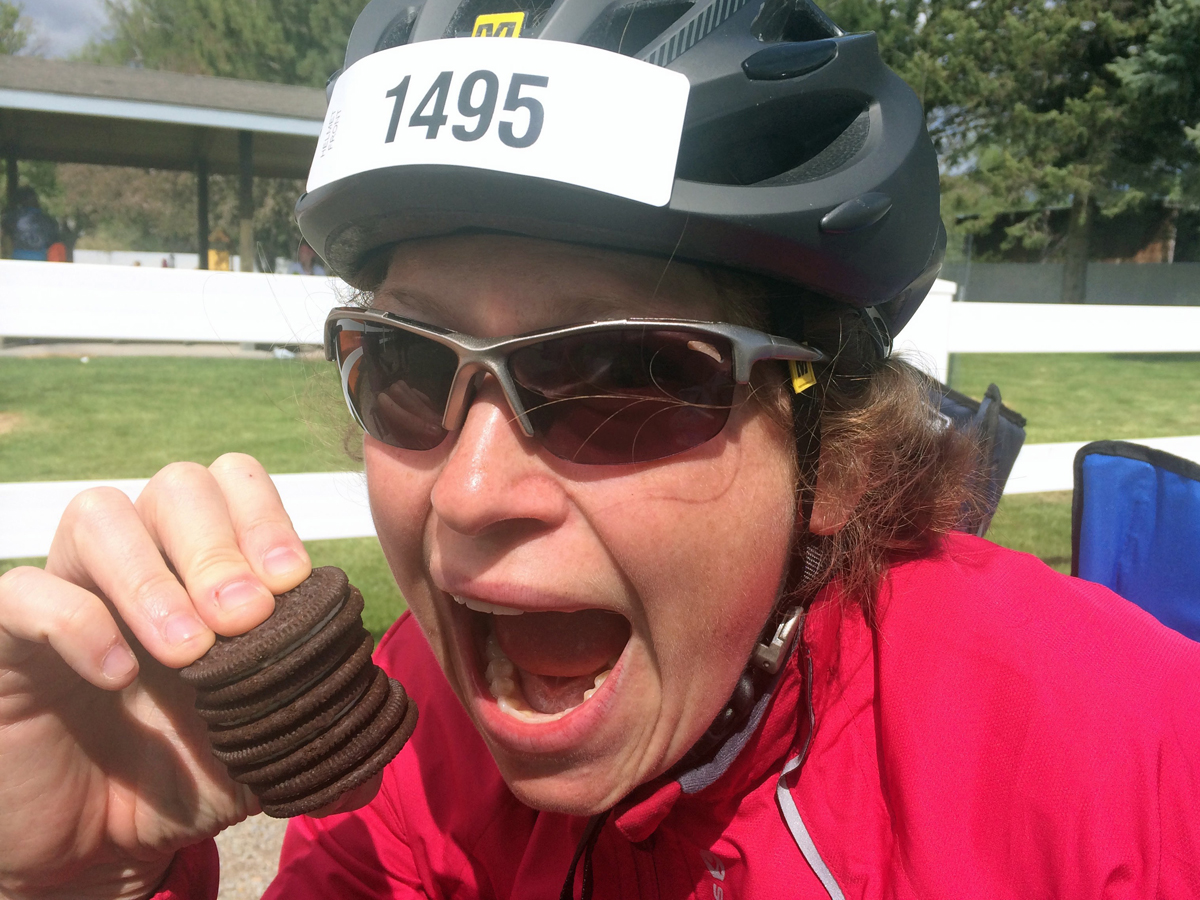
I’ve been cycling for a few years now. I’m not serious by serious standards and I’m not a racer. But I do love to ride. I cycle commute year-round. And I ride in a handful of citizen centuries every year.
If you’re toying with the idea of signing up for your first organized citizen ride, it’s good to be aware of the pros and cons of large events. Whether they’re called gran fondos, charity rides, or sportives, they all have basically the same goal: to get a bunch of riders together on the same course on the same day and go ride! I love large cycling events – the energy of hundreds or thousands of cyclists lining up to start, the satisfaction of accomplishing something really tough, the challenge of eating my entry fee’s worth of Oreos, I love it all! Well… almost all…
Let’s be honest – everything has its pros and cons, and cycling events are no exception. Based on my first few years of cycling experience, here are the ups and downs of large recreational cycling events as I see them:
Pro: Pre-planned Accountability
This is the biggest advantage of signing up for events ahead of time. Every spring I sign up for 5-10 cycling events and it keeps me accountable to training and ramping up to be ready for my summer schedule. I’ll be darned if I’m going to miss out of the fun of an event that I’ve already paid for and am looking forward to just because I didn’t stick to my training plan. Seeing the events on my calendar is some great external motivation for me.
Pro: Discover new routes
I enjoy participating in events close to home because often the organizers will often set a novel route that I never considered or will introduce me to a little-known gem of a back road. I gleefully incorporate these new routes into my regular cycling routine. I also love participating in events farther from home because I can enjoy riding in a new place without researching routes. Events are an (almost) guaranteed way to check out a new place without the risk of getting stranded at a dead end or forced to race the sun back on a busy highway.
Pro: Support a good cause
Events are a fun way to support a good cause. Most cycling events have a charity partner that receives some or all of the profit from the event. Also, there are often opportunities for non-cycling friends and family to get involved by staffing an aid station, working registration, or helping out with SAG (Support and Gear) – it’s a way for everybody to be a part of the event together and an added perk they’ll usually get free food and maybe even a free registration for next year.
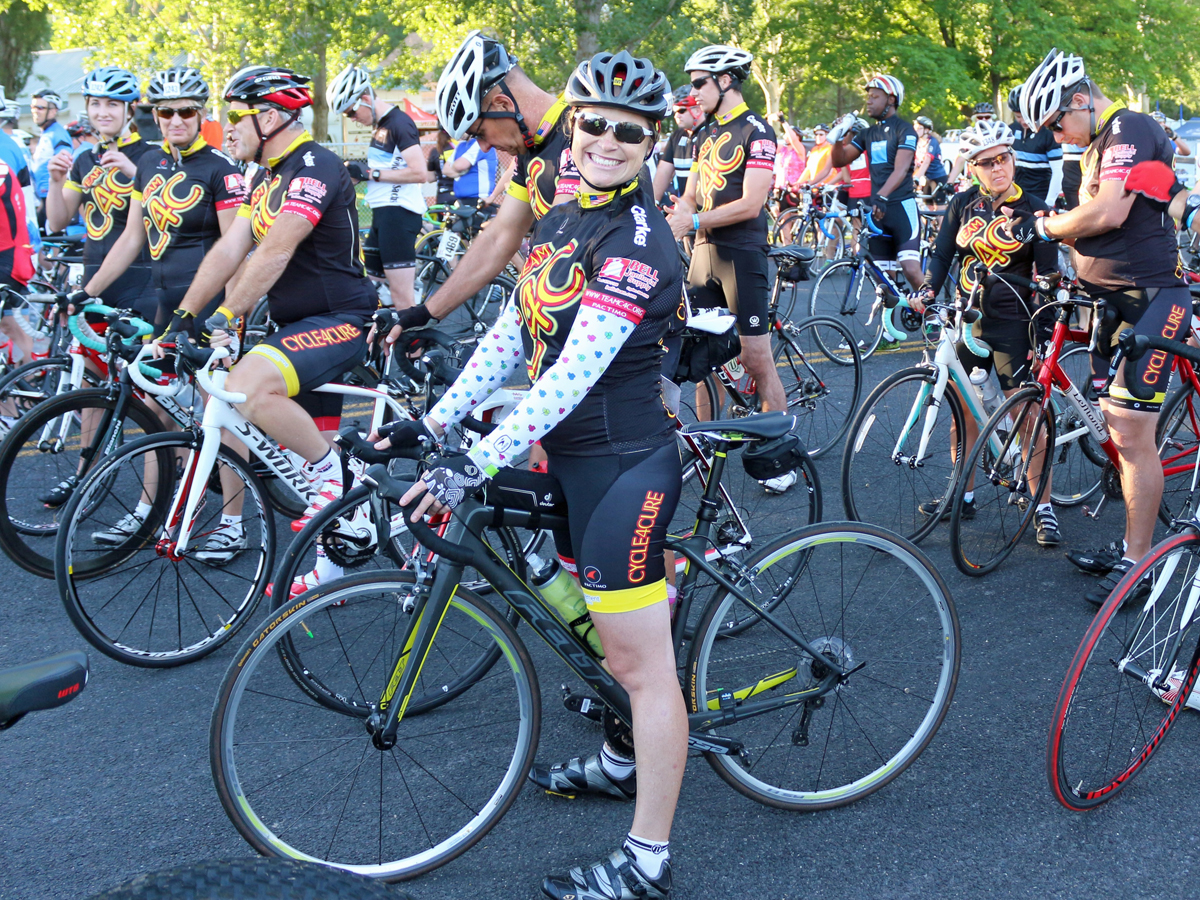
Con: It ain’t cheap
Between entry fees, transportation to and from the event, and a hotel for events far from home, the costs of participating in a large events can add up. You get a lot for your money – food before, after, and along the route, support in case of injury or equipment issue, a marked route, and swag. But you’ll be hard pressed to eat your entry fee’s worth of Oreos and peanut butter. Trust me, I try every time.
Pro: Big energy
There’s nothing like the feeling of all those riders lining up at the wee hours of the morning, ready to start on the day’s adventure. Everybody’s excited, everybody’s freezing, everybody’s wondering if they’ve got what it takes, everybody’s thinking they must be a wee bit crazy to pay money to wake up at 5 am to go out and ride. I especially love ladies’ events, which usually have a great “sisterhood” vibe. It’s amazing to look around at a rest stop or at the start and think, “Oh my gosh, all of these women love cycling just like me!”
Con: A Crazy hectic start
The flip side of all of the positive energy in a cycling event is that the first few miles can be congested and super slow as the pack of hundreds or thousands of riders get started. If you’re nervous, just stick toward the back of the pack for your first few events until you get the pattern of what’s going on so you miss the jostling in the front of the group.
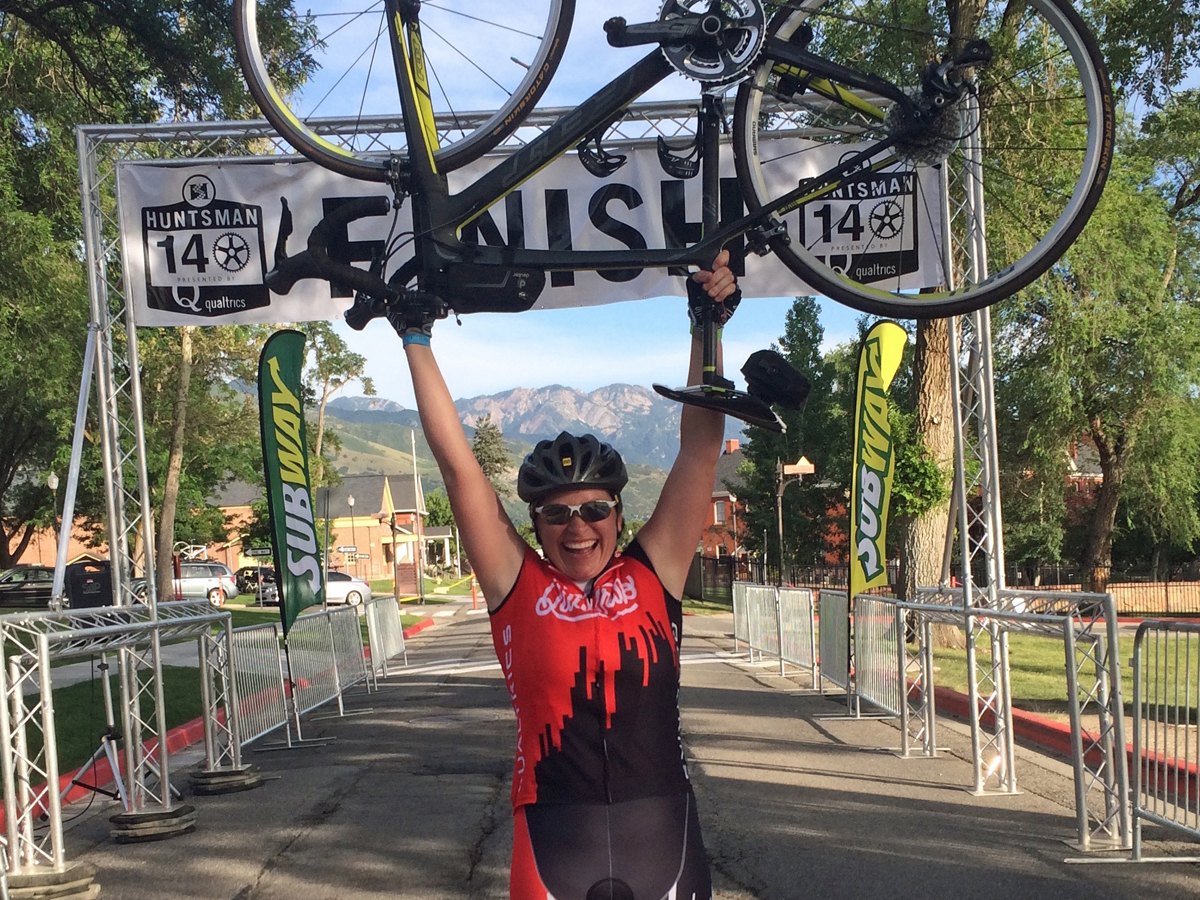
Pro: Emergency plan
A well-organized ride has plenty of support and SAG (Support And Gear) vehicles to keep you rolling or even leapfrog you forward if you have an equipment failure, injury, or are falling behind pace. Every rider has a responsibility to know basic bike maintenance and to ride with a tube, patch kit, and the essentials. But if the nice man on the SAG motorcycle wants to change my tube while I look on in gratitude, who am I to argue?
Con: Poorly planned events negate all the pros
Every event has its ups and downs, but an ill-planned event is extremely frustrating or even dangerous. A poorly-planned or badly-marked route will leave you confused, frustrated, or lost. Badly spaced or unequipped rest stops fall somewhere between a nuisance and downright liability if you run out of energy or water to drink.
So, expect the best and prepare for the worst, especially if the event is in its first or second year because the organizers may still be working out the kinks. Just like anytime you go out to ride, carry more water than you need and take responsibility for your own equipment and nutrition. Chances are, you won’t need it, but it’s always wise to be prepared.




